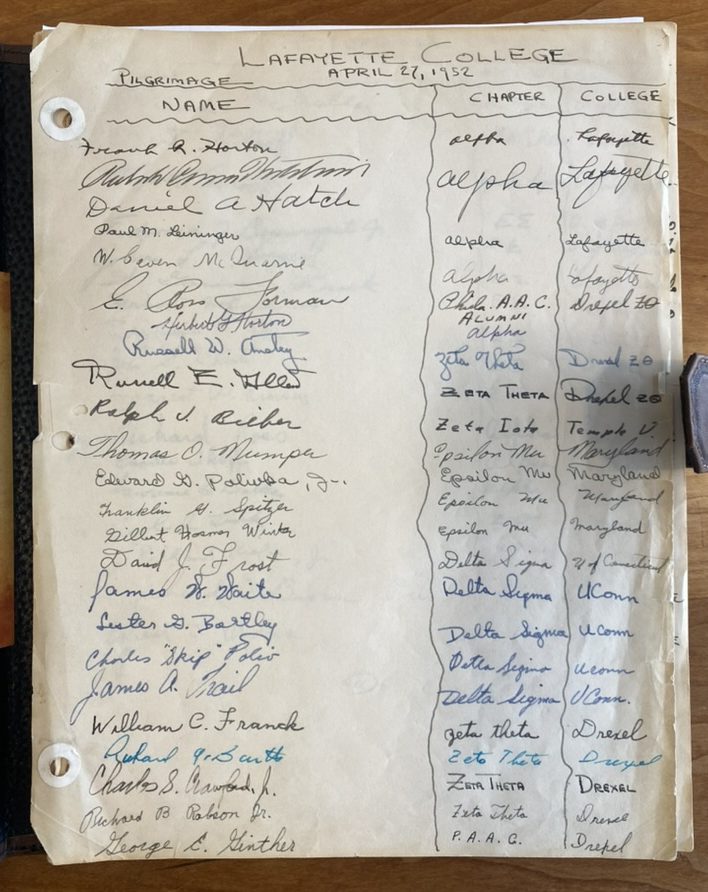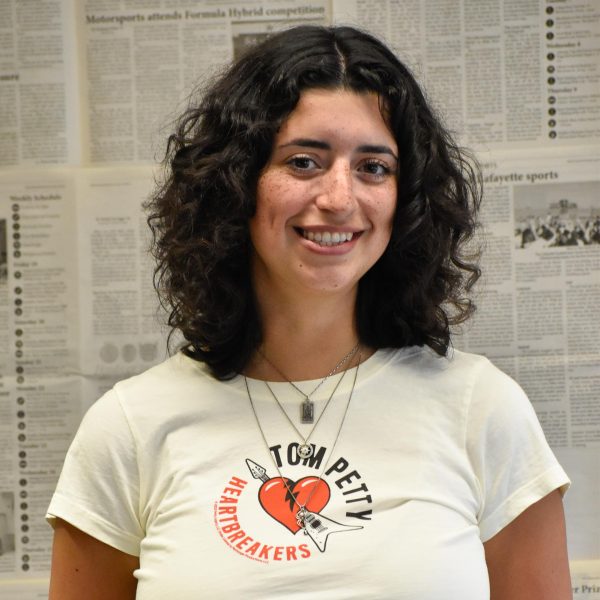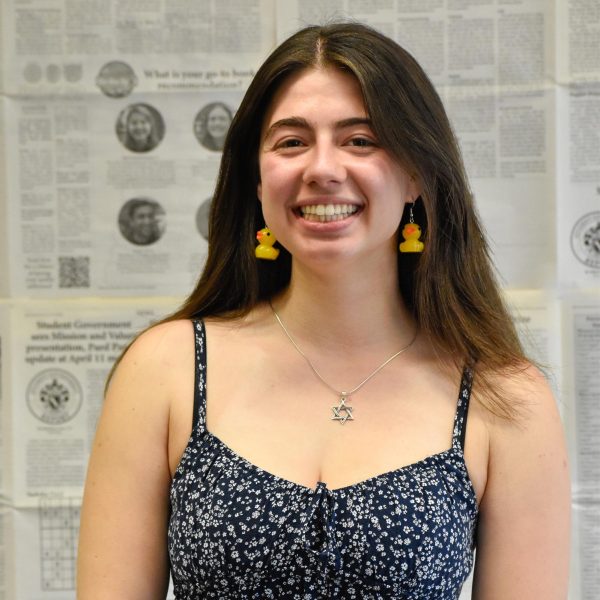Greek life is popular at Lafayette College, but did you know that its most famous chapter isn’t a social organization at all? Alpha Phi Omega, commonly known as APO, is a co-ed service fraternity and the largest intercollegiate fraternity in the country – and it was founded at Lafayette.
“It was a fun way to get involved in service and meet other people,” Lauren Davidson ‘27 said about why she joined.
The fraternity was founded at Lafayette in 1925 with just 14 members; now, it boasts more than 525,000 members on over 375 campuses, including 34 at Lafayette’s own.
The three guiding principles of the fraternity are leadership, friendship and service. All activities of the organization are meant to fulfill one of those values.
“I love APO because it gives service opportunities and makes them accessible,” Emma Serpi ‘28 said. “They already have established great relationships with volunteer partners in the community.”
Lafayette’s chapter works regularly with the local Whole Life Food Pantry, Center of Animal Health and Welfare and Paxinosa Elementary School for weekly tutoring, according to President Katie Simpson ’26, among other volunteering opportunities within the Easton community.
Carolynn Southwick, the volunteer coordinator for the animal shelter, said that APO volunteers can help staff in different ways during their visits, such as by cleaning and socializing with the animals to help them become more adoptable.
“Every time they come in, they’re extremely helpful and they’re very nice and excited to be here,” Southwick said. “It’s great to have worked with them all these few years.”
On campus, APO hosts larger service events throughout the year, such as collaborating with the Delta Tau Delta fraternity and Alpha Gamma Delta sorority for Rise Against Hunger meal packaging.
“They really helped organize that and coordinate that between both us and AGD,” said Dexter Kennedy ’26, the community service chairman for the Delta Tau Delta fraternity, about working for APO for the event this past year.
“I felt very in good hands when working with them,” he added.
Active members are required to achieve 15 service hours and 10 fellowship hours per semester, according to Simpson. Fellowship hours are achieved through community-bonding activities like trivia nights and dinners.
“Everyone there is super nice and welcoming,” said Sean Drahouzal ’26, the vice president of operations.
According to Treasurer Emily Kogut ’27, all members participate on committees such as fellowship and membership, providing leadership opportunities for all members.
“This is a safe place to grow those skills,” Kogut said.
As a fraternity, APO shares a similar operations vocabulary to the social organizations on campus: they have a “rush” and “pledging” period to recruit and assimilate new members, weekly chapter meetings and initiation to accept “pledges” as official members.
A key difference between APO and other fraternities on campus is that first-year students, like Serpi, can join.
“I feel like the pledging process is very laid-back,” Serpi said, describing the process as being comprised of events to familiarize pledges with the organization and each other.
Initiation for new members this semester will be held on Friday.
There is overlap between members of APO and other Greek life organizations, which Drahouzal said is not allowed at some other campuses.
“I’m able to use some of the community service I use there in my social fraternity and vice versa,” Drahouzal, a member of the Delta Upsilon fraternity, said about APO.
Like in Delta Upsilon and other fraternities, members of APO call themselves “brothers,” though the term is used gender-neutrally.
“A lot of people do get confused that there’s girls in a fraternity,” Simpson said.

Frank Reed Horton founded the fraternity during his senior year at Lafayette in 1925 to provide service and leadership opportunities and uphold the “standard of manhood” that he saw present in the Boy Scouts into adulthood. The national fraternity did not allow women to become affiliate members until 1974, four years after Lafayette became co-ed itself.
The Alpha chapter lost its charter in 1991 due to low membership after a long period of struggling to keep the chapter populated. The chapter finally received a new charter in 2018 after its approval as a club in 2016 and decades of attempts to revitalize it.
As part of a national organization, the chapter at Lafayette interacts with different chapters from across the country and even the world.
“We’ll see brothers from the Philippines here and they’ll travel just to come to Lafayette to look at where APO was founded,” Simpson said.
The centennial of APO approaches next year, putting the spotlight on its Alpha chapter.
“It’s a little bit stressful,” Simpson said about leading the chapter. “But everyone is super supportive.”
For interested students who did not spot the APO table at the fall involvement fair, the chapter also has a spring rush.
“I think it’s just super fun and it’s a super great way to get involved on campus and be able to reach out more with the city of Easton,” Drahouzal said.



























































































































